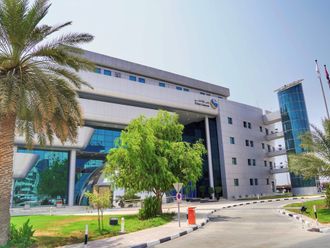Dubai: Artificial intelligence (AI) will lead to another industrial revolution to benefit humankind, delegates attending the sixth World Government Summit were told on Monday.
During a series of special sessions, AI experts shared the latest scientific discoveries on an issue that is on everyone’s mind and smartphones.
According to Kevin Kelley, founding executive director, Wired magazine, “The advancements in artificial intelligence will lead to yet another industrial revolution, which will create more jobs in the future,”
His comments came during a morning session that discussed the inevitability of AI and how governments can influence its development, including the technologies coming in the next 20 years and their impact on people.
Kelley said that as machines are being made, they are going to be engineered in a way that makes their cognition exceed human cognition in certain dimensions.
“These machines will be specialised and have variety of intelligence that exceeds ours. We are making many different types of AI minds, which will have many different types of thinking and almost none are like humans. The fact that they don’t think like us is the main benefit,” he said.
Pointing out the advantages of them being able to think differently, he said: “This would be the engine of a new economy and engine of all innovation. Alien intelligences help us think different. We will be working with them, not against them, and this will result in new jobs,” he said.
Kelley, who is a best-selling author of ‘The Inevitable’, went on to say that AI will be added to the cloud, meaning that it will be a widely available commodity.
On how governments should approach it, he said governments should use AI as much as possible but they have to be slow in regulating it and only regulate it after using it. He also added that governments should resort to AI to help improve regulations.
Kelley said data infrastructure that focuses on moving and storing data to run virtual reality and similar systems will prove advantageous for businesses in the future.
In his predictions, he said virtual reality would be the most social of all social media and it was going to be the next platform after smart phones. “In the future we will also be able to upload and download our experiences — moving from the internet of information to the internet of experiences.”
In another breakout address, Dr Roman Yampolskiy, professor at University of Louisville and an author of more than 100 publications, said he believed that in the future machines will be super smart, and in specific domains, like games or driving cars, they will be smarter than humans.
Despite some of the concerns of AI, such as malevolent designs of AI which he shared as an one of the examples, he said: “The good news is there is a lot being done to set up a framework for managing the development of AI.”
On the future of cities and AI, Stuart Russel, Professor of Computer Science and Electrical Engineering at the University of California, Berkeley, said self-driving cars dramatically reduce cost of transportation in cities.
“In talking with Uber, they estimate a tenfold reduction in the price of an Uber trip, effectively making it free to move around the city. That’s an amazing change in the way cities work.”
“In the city of the future, it also effectively becomes free to move around the city and you will probably have no car. Mass transit systems will also become better, probably because feeders will be much more efficient than you driving to a station.”
Experts shared some of their concerns of AI, such as robots doing exactly what they are asked to do without considering human values, ethics and sentiments.












